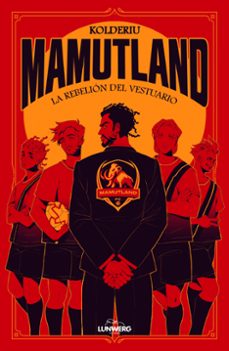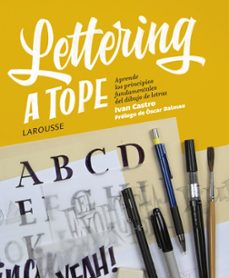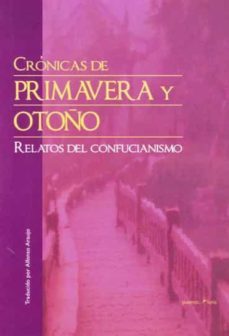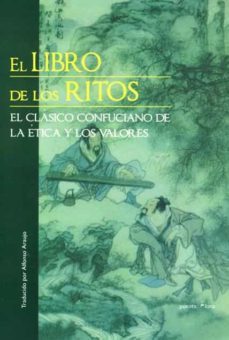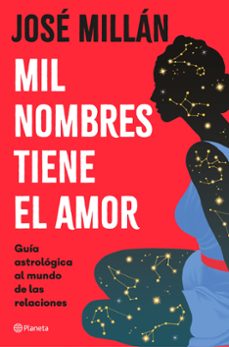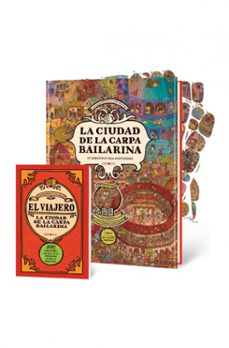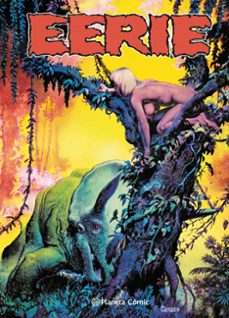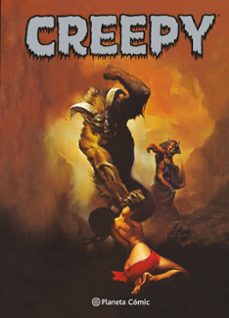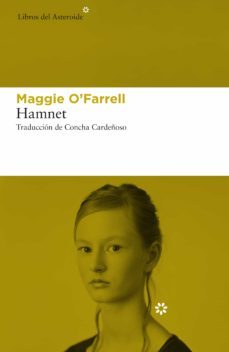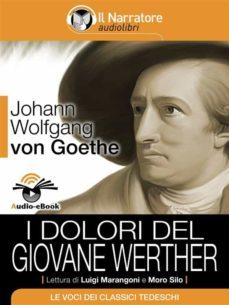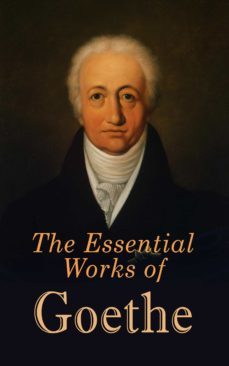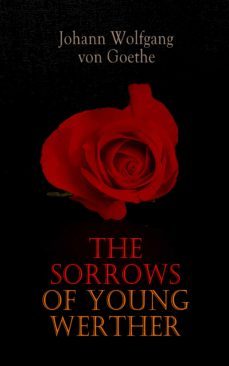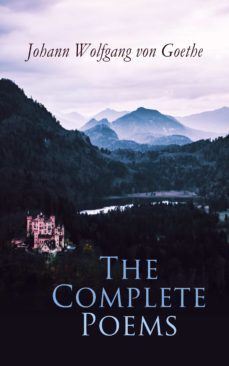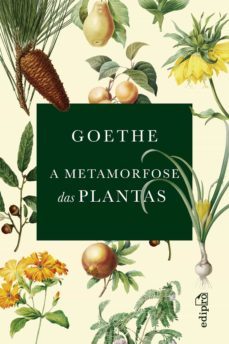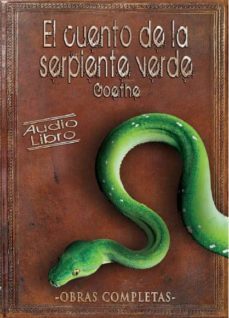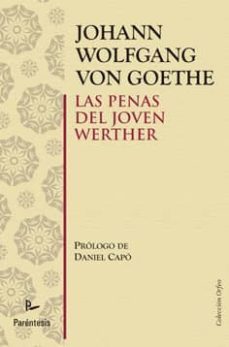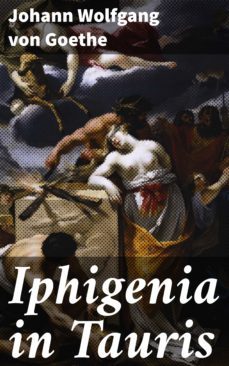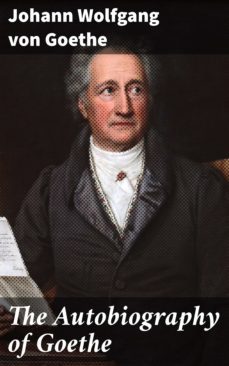Imprescindibles
Más vendidos Libros más leídos eBooks más leídos Todos los libros Todos los libros Autores destacados Series y sagas
Recomendados Libros recomendados Autores destacados Libros que inspiran Vidas con historia LGTBIQ+ English books
Ficción
Literatura Contemporánea Estudios literarios Clásicos Cuentos Poesía Teatro Libros de bolsillo Sagas literarias
Géneros literarios Novela romántica y erótica Novela negra Novela histórica Narrativa fantástica Novela de ciencia ficción Novela de terror Narrativa de humor Narrativa de viajes
No Ficción
Ciencias y tecnología Biología Ciencias Ciencias naturales Divulgación científica Informática Ingeniería Matemáticas Medicina Salud y dietas Formación Idiomas Estilo de vida Libros de Cocina Guías de viaje Narrativa de viajes Deportes Libros de Juegos Manualidades
Humanidades Autoayuda y espiritualidad Ciencias humanas Derecho Economía y Empresa Psicología y Pedagogía Filosofía Sociología Filología Biblioteconomía Estudios filológicos Estudios lingüísticos Estudios literarios Historia y crítica de la Literatura
Infantil
Juvenil
#Jóvenes lectores Narrativa juvenil Clásicos adaptados Libros Wattpad Libros Booktok Libros de influencers Libros de Youtubers Libros Spicy Juveniles Libros LGTBIQ+ Temas sociales Libros ciencia ficción Libros de acción y aventura Cómic y Manga Juvenil Cómic Juvenil Manga Shonen Manga Shojo Autores destacados Jennifer L. Armentrout Eloy Moreno Nerea Llanes Hannah Nicole Maehrer
Libros de fantasía Cozy Fantasy Dark academia Hadas y Fae Romantasy Royal Fantasy Urban Fantasy Vampiros y hombres lobo Otros Misterio y terror Cozy mistery Policiaca Spooky Terror Thriller y suspense Otros
Libros románticos y de amor Dark Romance Clean Romance Cowboy Romance Mafia y amor Romance dramatico Romcom Sport Romance Otros Clichés Enemies to Lovers Friends to Lovers Hermanastros Slow Burn Fake Dating Triángulo amoroso
Cómic y Manga
Novela gráfica Novela gráfica americana Novela gráfica europea Novela gráfica de otros países Personajes, series y sagas Series y sagas Star Wars Superhéroes Cómics DC Cómics Marvel Cómics otros superhéroes Cómics Valiant
eBooks
Literatura Contemporánea Narrativa fantástica Novela de ciencia ficción Novela de terror Novela histórica Novela negra Novela romántica y erótica Juvenil Más de 13 años Más de 15 años Infantil eBooks infantiles
Humanidades Autoayuda y espiritualidad Ciencias humanas Economía y Empresa Psicología y Pedagogía Filosofía Historia Historia de España Historia Universal Arte Cine Música Historia del arte
Ciencia y tecnología Ciencias naturales Divulgación científica Medicina Salud y dietas Filología Estudios lingüísticos Estudios literarios Historia y crítica de la Literatura Estilo de vida Cocina Guías de viaje Ocio y deportes
Johann Wolfgang von Goethe, página 7 de 31
Filtros
Del 121 al 140 de 609
AUTOR-EDITOR cdlap00000389
Werther es una novela importante del movimiento Sturm und Drang en la literatura alemana. Es uno de los pocos trabajos de este movimiento que Goethe escribió antes de que, junto a Friedrich von Schiller, comenzara el movimiento clasico de Weimar. Tambien influyo en la literatura del Romanticismo que siguio a este movimiento.
Ver más
eBook
Il Narratore 9788868161385
Questo Audio-eBook e uno dei piu importanti romanzi damore della letteratura universale, letto magistralmente dallattore Luigi Marangoni.Da questo classico di grande bellezza, letto magistralmente dallattore Luigi Marangoni, i giovani possono imparare ancora molto sul sentimento amoroso e sullatteggiamento verso la Natura, come ha scritto il grande filosofo del XX secolo Gyrgy Lukacs: Il Werther e concepito generalmente come un romanzo damore. A ragione? Si, il Werther e uno dei piu importanti romanzi damore della letteratura universale. Ma, come ogni rappresentazione poeticamente grande della tragedia damore, anche il Werther e molto di piu di una mera tragedia amorosa. Al giovane Goethe riesce di inserire organicamente in questo conflitto damore tutti i grandi problemi della lotta per lo sviluppo dellindividuo. La tragedia amorosa del Werther e la tragica esplosione di tutte le passioni che di solito si presentano nella vita divise, isolate, astratte; qui pero sono fuse nel fuoco della passione amorosa in ununica massa incandescente e luminosa.Scritto alla fine del 700 e ancora un testo attualissimo che esplora lentusiasmo, la gioia ma anche le pene e le confusioni dei giovani innamorati. Da questo classico di grande bellezza i giovani possono imparare ancora molto sul sentimento amoroso e sullatteggiamento verso la Natura. (Versione integrale)Per fruire al meglio di questo Audio-eBook da leggere e ascoltare in sincronia leggi la pagina daiuto a questo link:https://help.streetlib.com/hc/it/articles/211787685-Come-leggere-gli-audio-ebook
Ver más
eBook
E-ARTNOW 9788027304141
This meticulously edited collection is formatted for your eReader with a functional and detailed table of contents:The Sorrows of Young WertherWilhelm Meisters ApprenticeshipWilhelm Meisters Journeyman YearsElective AffinitiesThe Good WomenNovella; or, A TaleGreen Snake and the Beautiful LilyFaust- Faust (Part One)- Faust (Part Two)- Faustus (Translated by Samuel Taylor Coleridge)Goetz Von Berlichingen with the Iron HandHermann and DorotheaErotica RomanaReynard the FoxThe Sorcerers ApprenticeTruth and Poetry: From My Own Life (Autobiography)Maxims and ReflectionsLetters from Italy (Italian Journey)Letters from SwitzerlandEckermanns Conversations with GoetheTheory of ColoursLife of Johann Wolfgang Goethe (James Sime)Goethe: The Writer (Ralph Waldo Emerson)Byron and Goethe (Giuseppe Mazzini)The Faust-Legend and Goethes Faust (H. B. Cotterill)Goethes Farbenlehre: Theory of Colors (I&II) (John Tyndall)
Ver más
eBook
e-artnow 9788027304196
Werther is a young artist of a sensitive and passionate temperament. He meets Charlotte, a beautiful young girl who takes care of her siblings after the death of their mother, and falls in love with her although knowing beforehand that she is engaged. Despite the pain it causes him, Werther keeps spending time with Charlotte, but his pain eventually becomes so great that he is forced to leave. After a short absence, he comes back to find Charlotte married, and his agony becomes a threat.
Ver más
eBook
e-artnow 9788027304103
Elective Affinities, also translated under the title Kindred by Choice, is the third novel by Johann Wolfgang von Goethe, published in 1809. The title is taken from a scientific term once used to describe the tendency of chemical species to combine with certain substances or species in preference to others. The novel is based on the metaphor of human passions being governed or regulated by the laws of chemical affinity, and examines whether or not the science and laws of chemistry undermine or uphold the institution of marriage, as well as other human social relations. The story is situated around the city of Weimar. Goethes main characters are Eduard and Charlotte, an aristocratic couple both in their second marriage, enjoying an idyllic but semi-dull life on the grounds of their rural estate. They invite the Captain, Eduards childhood friend, and Ottilie, the beautiful, orphaned, coming-of-age niece of Charlotte, to live with them...
Ver más
eBook
e-artnow 9788027304080
Wilhelm Meister- the hero of the story - undergoes a journey of self-realization. The story centres upon Wilhelms attempt to escape what he views as the empty life of a bourgeois businessman. After a failed romance with the theatre, Wilhelm commits himself to the mysterious Tower Society.Wilhelm Meisters Journeyman Years or His Travels - Consisting largely of discrete short stories and novellas woven together with elements of the epistolary novel, lengthy sections of aphorisms, and several interspersed poems, the sequel is a treat to read! A major theme running through the various parts of the novel is that of "Entsagung," translatable as "renunciation." The most famous section of the novel is probably the episode in which the protagonist and his son Felix visit the "Pedagogical Province."
Ver más
eBook
E-ARTNOW 9788027304134
This meticulously edited collection is formatted for your eReader with a functional and detailed table of contents:Hermann and DorotheaErotica RomanaReynard the FoxThe Sorcerers ApprenticeSongsFamiliar SongsBalladsCantatasOdesSonnetsEpigramsParablesArtGod, Soul, and WorldReligion and ChurchAntiquesVenetian EpigramsElegiesWest-Eastern DivanSongs from Various PlaysMiscellaneous Poems
Ver más
eBook
Edipro 9788552100720
Alçado à fama aos 21 anos, com Os sofrimentos do jovem Werther, e celebrado pela crítica aos 41 anos, com Fausto, Johann Wolfgang von Goethe é reconhecido como um dos maiores poetas e dramaturgos da
Ver más
eBook
DIDACO (AUDIOLIBROS) 8436014969590
" Con claras influencias de la poesia Oriental y del romamanticismo occidental, La Serpiente Verde, es uno de los cuentos fantasticos más seduductores de Goethe. Se enlazan personajes sin dejar nada al azar y sin que ningun eslabon quede suelto."
Ver más
Otros
AUTOR-EDITOR cdlap00002140
Goethe - Las afinidades electivas, cuyo título original es Die Wahlverwandtschaften, es una novela del escritor alemán Johann Wolfgang von Goethe publicada en 1809.
Ver más
eBook
PARENTESIS EDITORIAL 9788499190754
En Las penas del joven Werther, el más influyente de sus libros, escrito a la impresionable edad de veinticuatro años, Goethe recoge no pocos componentes autobiográficos. Otra parte nada despreciable de esta novela epistolar que narra un triangulo amoroso traduce las versiones espurias que de poemas ossianicos hiciera James Macpherson, y su encendido apasionamiento prendio en el movimiento romantico que por entonces estaba a punto de surgir en Alemania. No faltan coincidencias, por otra parte, con ese canto de amor imposible que acaba en muerte que hallamos en el Tristan e Isolda de Wolfram von Eschenbach (quintaesenciado en Wagner), quien, como Goethe a traves del ossianismo de Macpeherson, bebia en fuentes celticas altomedievales. Napoleon Bonaparte fue rendido admirador de este libro, que actuo como espoleta de la mas grave decision de cientos y cientos de jovenes lectores despechados en un fenomeno que podria haber glosado John Donne en su Biathanatos en tiempos en que aun no se habia acuñado la palabra suicidio. William Thackeray, Mary Shelley, Bohumil Hrabal, Ugo Foscolo o Thomas Mann son solo algunos de los autores que se han inspirado en esta arrebatadora novela de la que solo en España se publicaron decenas de ediciones.
Ver más
Tapa blanda
Good Press 4057664132314
Goethes "Faust" is a monumental literary work that intricately weaves together themes of ambition, desire, and the quest for meaning through the dual narratives of scholarly pursuit and moral quandary. Written in a poetic and dramatic style, the text captures the essence of Romanticism, showcasing deep philosophical reflections, vivid characterizations, and a dynamic interplay between light and darkness. The story chronicles the eponymous protagonist, Faust, who, dissatisfied with his life, makes a pact with Mephistopheles, the devil, exchanging his soul for unlimited knowledge and worldly pleasures, ultimately reflecting humanitys eternal struggle with existential dilemmas. Johann Wolfgang von Goethe (1749-1832), a seminal figure in German literature, drew on his diverse experiencesfrom his studies in law and natural sciences to his deep interests in philosophy and artto craft "Faust." Written over several decades and influenced by various philosophical movements, including Enlightenment and Romanticism, Goethes exploration of human emotions and ethical choices reflects his own intellectual evolution and a profound engagement with contemporary concerns about reason, spirituality, and the limits of ambition. "Faust" is not merely a tale of damnation; it is an invitation to explore the depths of human ambition and the intricacies of moral choice. I recommend this profound work to anyone captivated by the interplay of knowledge and desire, as it remains a timeless reflection on the human condition, urging readers to ponder their own paths in life.In this enriched edition, we have carefully created added value for your reading experience:- A succinct Introduction situates the works timeless appeal and themes.- The Synopsis outlines the central plot, highlighting key developments without spoiling critical twists.- A detailed Historical Context immerses you in the eras events and influences that shaped the writing.- An Author Biography reveals milestones in the authors life, illuminating the personal insights behind the text.- A thorough Analysis dissects symbols, motifs, and character arcs to unearth underlying meanings.- Reflection questions prompt you to engage personally with the works messages, connecting them to modern life.- Handpicked Memorable Quotes shine a spotlight on moments of literary brilliance.- Interactive footnotes clarify unusual references, historical allusions, and archaic phrases for an effortless, more informed read.
Ver más
eBook
ALMA BOOKS 9781847490988
Baron Eduard and his second wife Charlotte enjoy a quiet, humdrum existence in their opulent castle. When he invites his friend the captain and she invites her niece Ottilie to stay with them, both hosts lives turn inside out when they begin to feel attracted to their guests. Juxtaposing social interactions with scientific principles, this unique novel illustrates the typically Romantic concern of the individual coming to terms with society.
Ver más
Tapa blanda
Good Press 4057664643377
In "Iphigenia in Tauris," Johann Wolfgang von Goethe reinterprets the ancient Greek myth of Iphigenia, exploring themes of fate, sacrifice, and redemption through a neoclassical lens. The play, composed in blank verse, captures the emotional gravity and psychological complexity of its characters, particularly Iphigenia herself, who grapples with notions of duty and familial loyalty while yearning for freedom. Goethes work reflects the EnlightenmentAos emphasis on reason and moral integrity, positioning the narrative within a rich literary context that bridges classical tradition and modern sensibilities. Goethe, a titan of German literature, drew inspiration from his profound engagement with classical texts and humanistic ideals. Having traveled extensively and familiarized himself with diverse cultural philosophies, he was able to convey the universal struggles of the human condition in "Iphigenia in Tauris." This play is a culmination of his artistic maturation, showcasing his mastery of language and form while reflecting the tensions between irrationality and reason, a defining feature of his oeuvre. For readers seeking a profound exploration of human emotion intertwined with classical themes, "Iphigenia in Tauris" is an indispensable work. It not only exemplifies Goethes brilliance but also invites contemporary readers to ponder timeless questions of identity and moral duty, making it a compelling addition to any literary collection.
Ver más
eBook
Good Press 4057664641915
Johann Wolfgang von Goethes Hermann and Dorothea is a poetic epic set during the French Revolution, blending elements of social commentary, romance, and pastoral themes. Written in a graceful and flowing verse style typical of Goethes lyrical poetry, the narrative follows the story of two young lovers, Hermann and Dorothea, as they navigate the challenges and turmoil of the historical period. Through vivid descriptions of the German countryside and insightful reflections on human nature, Goethe weaves a compelling tale that captivates readers with its emotional depth and moral complexity. The text showcases Goethes mastery of form and language, making it a timeless classic in German literature. As a prominent figure in the German literary canon, Goethes work continues to influence generations of writers and thinkers. His deep insight into human psychology and societal dynamics shines through in Hermann and Dorothea, making it a must-read for those interested in exploring the intersections of art, history, and philosophy.
Ver más
eBook
Good Press 4057664648877
In "The Autobiography of Goethe," Johann Wolfgang von Goethe presents an intricate tapestry of his life, delving into his development as a multifaceted artist, philosopher, and statesman. Written with remarkable introspection, this work showcases Goethes lyrical prose interwoven with philosophical musings and poignant reflections on his formative years. It captures the essence of the Sturm und Drang movement that influenced his early work, as well as the subsequent classicism that defined his later writings. The autobiography not only chronicles his personal evolution but also situates his experiences within the broader context of European cultural and intellectual shifts of the late 18th and early 19th centuries. As a seminal figure of the German literary canon, GoetheAos upbringing in Frankfurt and his extensive travels deeply informed his worldview. His encounters with prominent contemporaries and his immersion in the Enlightenment ideals galvanized him to explore themes of individuality and artistic expression. These elements are woven into the fabric of his autobiography, where he reflects on the struggles and triumphs that shaped his towering literary legacy. I highly recommend "The Autobiography of Goethe" to readers seeking to understand not only the life of one of literatureAos greatest figures but also the profound interplay between personal experience and artistic creation. This work serves as an essential entry point for anyone interested in the development of modern thought and the interplay of art and life.
Ver más
eBook
......
Del 121 al 140 de 609

